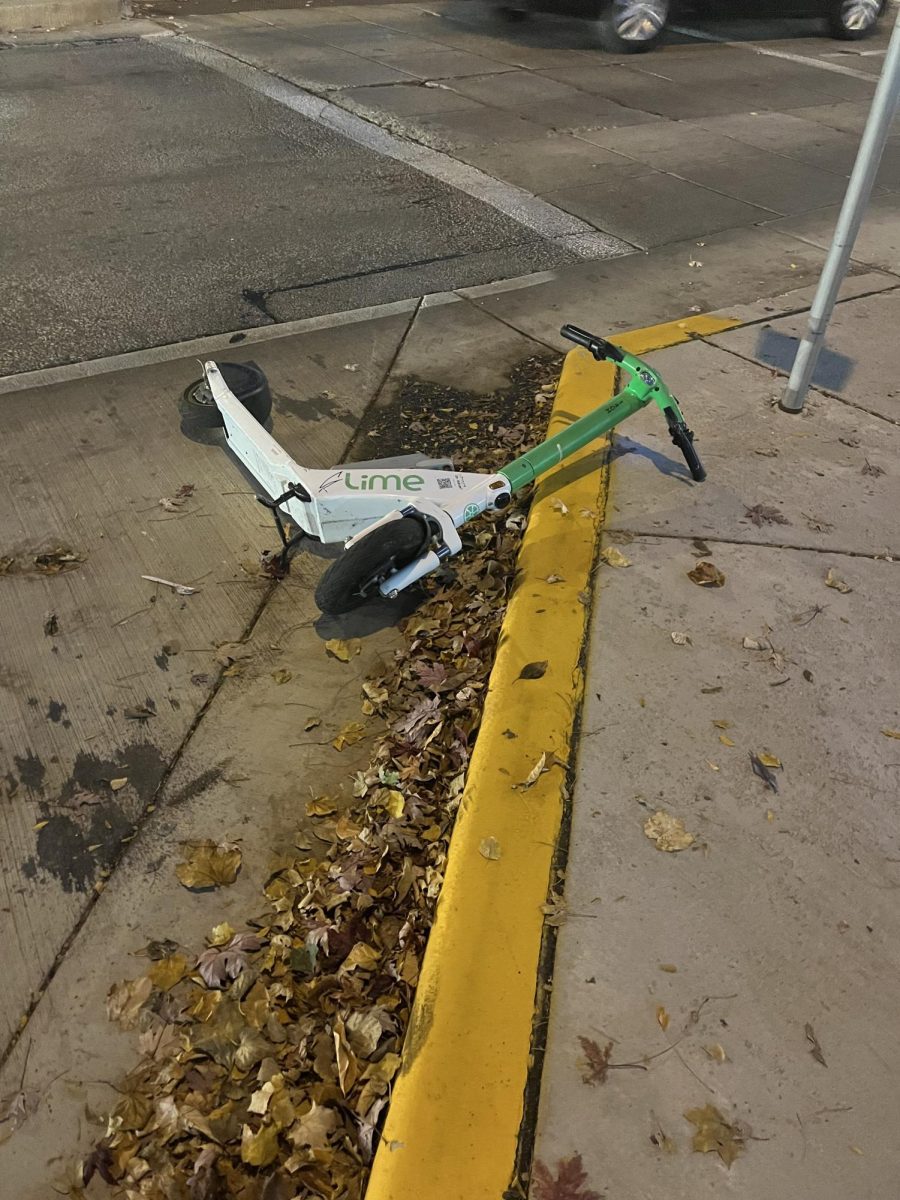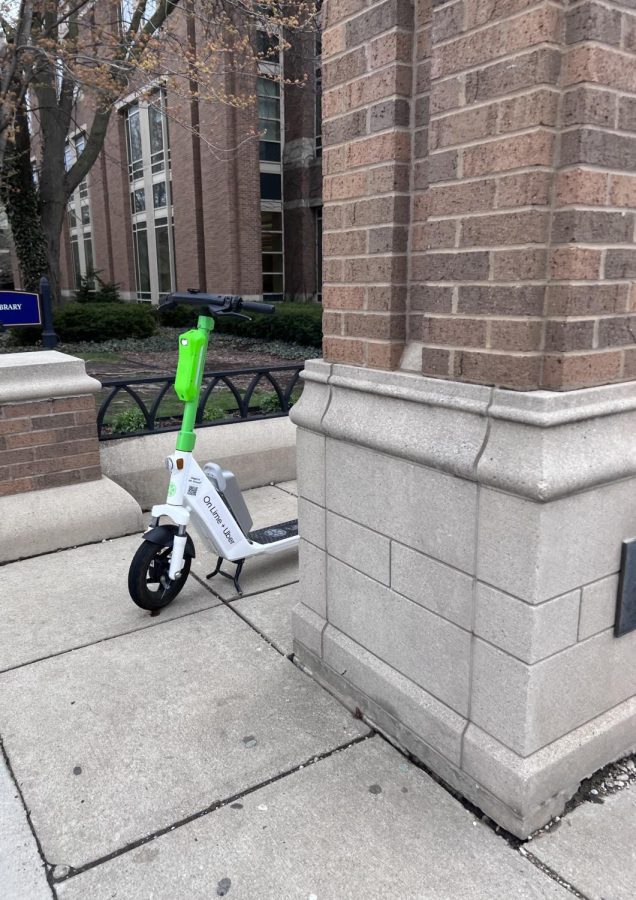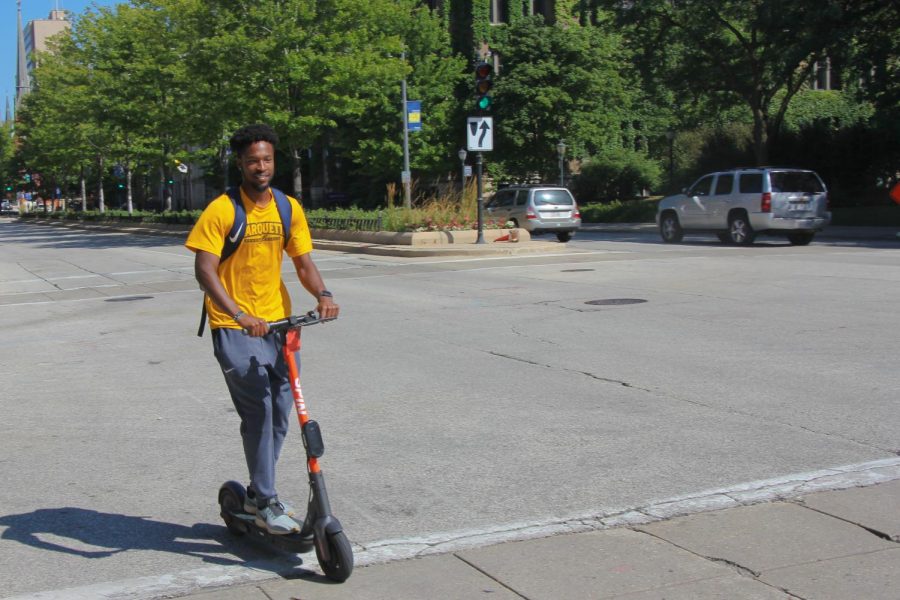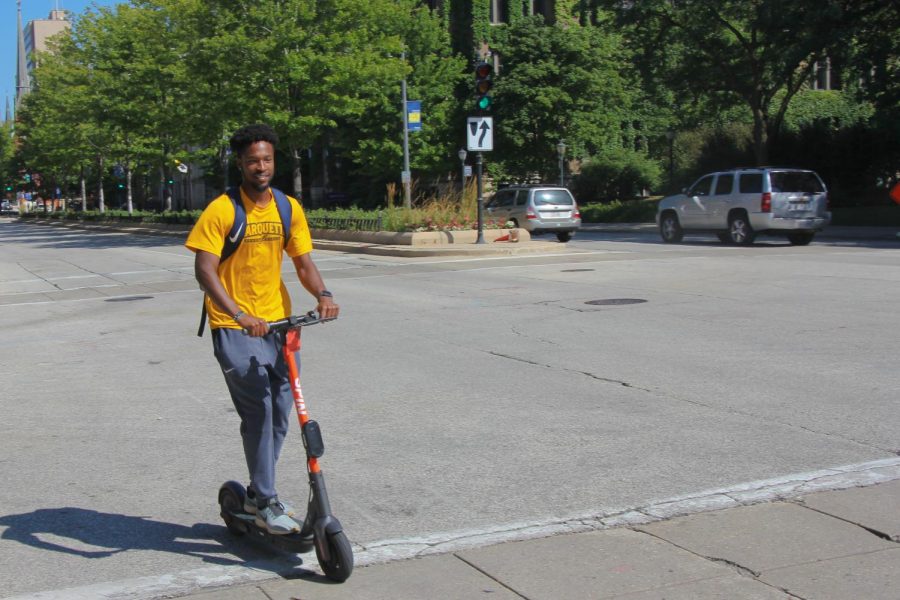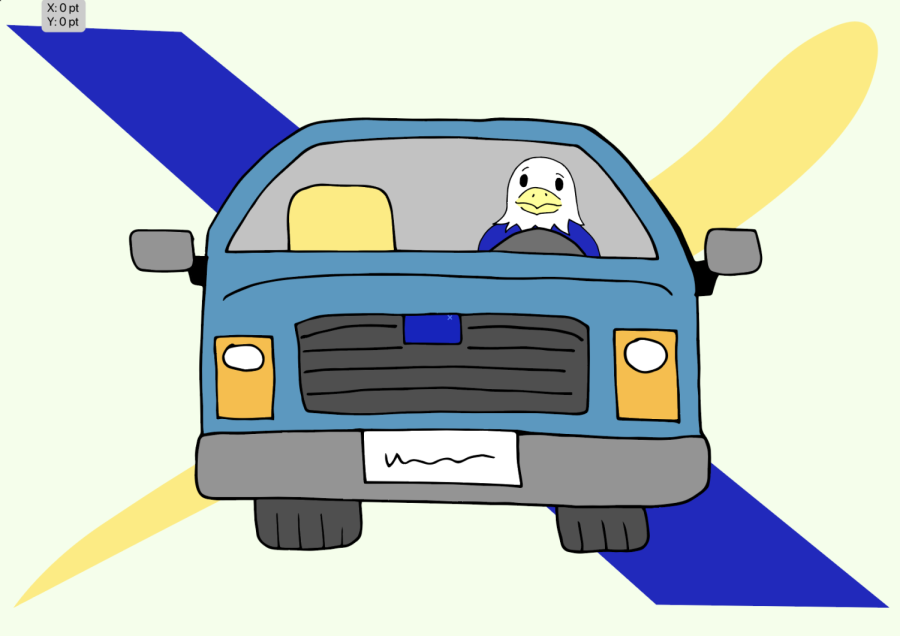A week ago, I was riding through downtown Milwaukee on an electric scooter, when suddenly, I made a turn and the front tire popped off. I went flying off the vehicle, tumbling onto the side of the road. Luckily for me, I sustained no injuries, but I was left feeling disillusioned with the scooters that promised to be so beneficial to the community.
I was once enamored with their promises of being an easy, low-cost and low-emission method of transportation for individuals who could not use bikes or buses, but now understand the dangers they pose to the public.
The community must be aware of these risks, and if operators cannot remedy them, they should be removed from Milwaukee’s streets.
Dockless e-scooters were introduced to Milwaukee in 2019. Since then, three companies, Lime, Spin and Veo, have been allowed to operate scooters as a part of a pilot study conducted by the city with the goal of increasing transportation options for people with limited access to vehicles. They are currently amid their third pilot program.
According to a survey conducted by the Milwaukee Mayor’s Office, the scooters were met with mostly favorable feedback during their 2019 pilot program.
Still, 27.4% of respondents said they believe e-scooters should be entirely prohibited. After the 2021 pilot program, that number rose to 29.3%, with most respondents raising concerns about improper parking, sidewalk riding and the general danger of the scooters.
Marquette University is one of four locations in the city that has permanently banned electric scooters on its premises, citing the increasing evidence of the danger scooter riders pose to themselves and others.
Recent accidents in Milwaukee have proven Marquette was right for expressing concern about the safety of these vehicles. According to data from the Milwaukee Department of Public Works, there have been 31 reported crashes from the start of the first pilot study in 2019 to June 6, 2023. This does not include two fatal crashes that happened this summer.
In June, a Milwaukee man was killed while riding an electric scooter when he collided with a motorcycle at 27th Street and Forest Home Avenue.
Another man was killed in a hit-and-run crash Sept. 1 while riding a scooter on 37th Street and Congress Street.
Incidents like these happen, in part, because scooters are required to share the streets with cars and motorcycles, often without a bike lane. A scooter’s small size also poses a major threat to riders who may not be seen by other vehicles on the road.
The consequences of reckless driving are also far worse for e-scooter users as they are provided little protection in crashes. Unlike a car, which surrounds its driver, a scooter rider is completely exposed to the elements. Operators encourage riders to wear helmets to prevent injury, but there are no rules requiring riders to wear them and therefore, very few do.
They also have users take safety tests before renting a vehicle. Based on data from the pilot studies, riders do know the rules but break them anyway.
In their survey, 88.1% of respondents knew sidewalk riding was prohibited, yet 39.2% said they had ridden on the sidewalk for some part of their trips. Warning users to ride safely is not enough. If rules are never enforced, riders will continue to put themselves at risk.
I was a big fan of motorized scooters for a long time. Until my fall, I took multiple trips on them a week, and I truly believed in the value they provide to the community.
E-scooters still have the potential to be successful, and Milwaukee could lead the way towards establishing proper infrastructure to accommodate these scooters. Creating protected bike lanes and properly enforcing safety regulations would go a long way towards making these vehicles safer.
This story was written by Joseph Schamber. He can be reached at joseph.schamber@marquette.edu.



